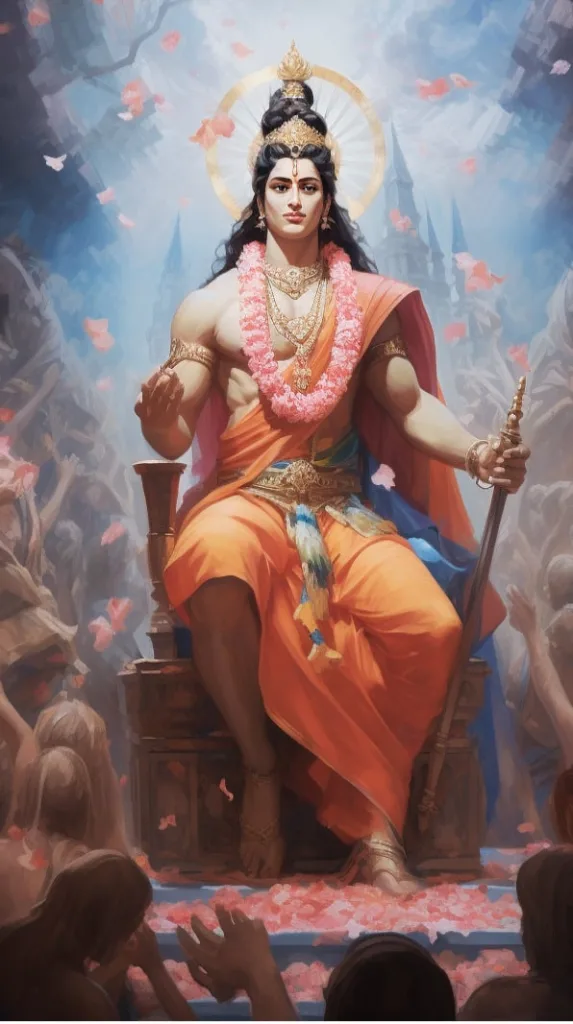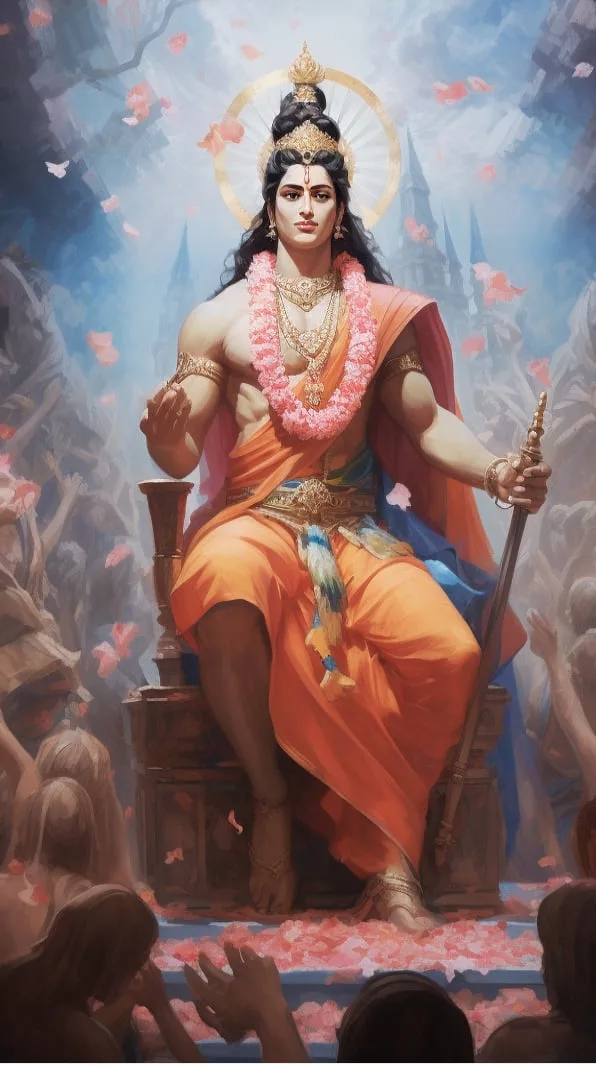
The Ramayana, an integral part of Bhartiya Itihaas, provides a profound and holistic portrayal of ideal leadership. This is beautifully embodied in its protagonist, Bhagwan Ram, who is widely acknowledged for his virtuous and selfless leadership. His qualities deeply resonate even in today’s complex and rapidly evolving world. As we delve into the intersection of mythology and evidence-based practices in leadership and psychology, we can draw out invaluable insights and lessons from Bhagwan Ram’s life and reign that are strikingly relevant today.
Leading by Example: The Epitome of Dharma
Bhagwan Ram is universally regarded as ‘Maryada Purushottam,’ the ultimate personification of righteousness and moral conduct. His life was a living testament to the path of Dharma. He walked this path undeterred, no matter the personal sacrifices it demanded. His unwavering commitment to truth, justice, and duty, even in the face of extreme adversity, offers a compelling and timeless message to leaders of every generation. This message encourages leaders to lead by example and consistently uphold the highest standards of integrity.
Empathy and Compassion: The Key to Understanding Others
Bhagwan Ram’s leadership was distinguished by his deep empathy and boundless compassion for all beings. This was evident in his interactions with even those at society’s fringes, like Shabari, and his most devoted bhakt, the Vanara deity Hanuman. These interactions underscore the crucial importance of understanding and valuing the perspectives of all team members, no matter their societal status. This perspective is backed by modern leadership research, which underscores empathy’s pivotal role as a leadership trait, thus affirming this age-old wisdom.
Decision Making: Balance of Head and Heart
Bhagwan Ram was a master of balanced decision-making, skilfully blending emotion and reason. Whether it was accepting the hardship of exile to honour his father’s promise or undertaking the arduous journey across the ocean to rescue his wife, Sita, his decisions were a remarkable blend of emotional intelligence and strategic thinking. This balanced approach to decision-making is highly sought-after in today’s volatile, uncertain, complex, and ambiguous (VUCA) world, making Bhagwan Ram’s example highly relevant.
Inclusive Leadership: Embracing Diversity
Inclusivity was a hallmark of Bhagwan Ram’s leadership style. This was apparent in his alliance with the Vanara (monkey) kingdom, his acceptance of Vibhishana (brother of his adversary Ravana), and his egalitarian treatment of all his subjects, irrespective of their social status or species. His acceptance of diversity shines a light on the modern concept of diverse teams, known for their higher levels of innovation and effectiveness.
Resilience: The Ability to Withstand Challenges
Throughout his life, Bhagwan Ram faced numerous trials and tribulations, from a 14-year-long exile in the forest to his wife’s abduction by Ravana. Yet, his resilience, displayed through his unwavering focus on the larger goal, is an enduring beacon of inspiration. His resilience offers a crucial lesson for today’s leaders, underlining the importance of maintaining resolve and optimism when navigating crises.
Communicating with Clarity: The Power of Eloquence
Bhagwan Ram was a master communicator. His conversations with friends, foes, and even animals were always clear, respectful, and inspiring. Whether it was rallying the Vanara army or offering counsel to his brother Lakshman, Bhagwan Ram’s words were consistently measured, meaningful, and full of wisdom. As demonstrated by Bhagwan Ram, effective communication is a critical tool in modern leadership, fostering trust, clarity, and collaboration among teams.
—
The portrayal of Bhagwan Ram in the Ramayana presents a timeless blueprint for effective leadership. His life and actions serve as a rich reservoir of lessons that hold tremendous relevance, even in our fast-paced modern world. Bhagwan Ram’s leadership style, which personifies integrity, empathy, balanced decision-making, inclusivity, resilience, and clear communication, offers a blend of emotional intelligence and strategic thinking that can guide leaders today. By integrating these timeless lessons with scientific evidence and modern leadership principles, we can cultivate a holistic and practical leadership style that stands the test of time.
Though thousands of years old, the Ramayana, Bhagwan Ram, and his leadership principles are rich with insights for present-day leaders. By embracing these lessons, leaders can chart a course that drives their teams towards success and fosters an environment of respect, trust, and cooperation. Through this, the Ramayana continues to inspire and guide us on the path of effective and empathetic leadership.





